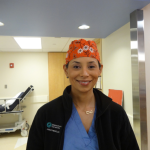Mass Eye and Ear’s Child Life Department plays an imperative role in providing comfort and support to children and their families who come to the hospital for surgical treatments.
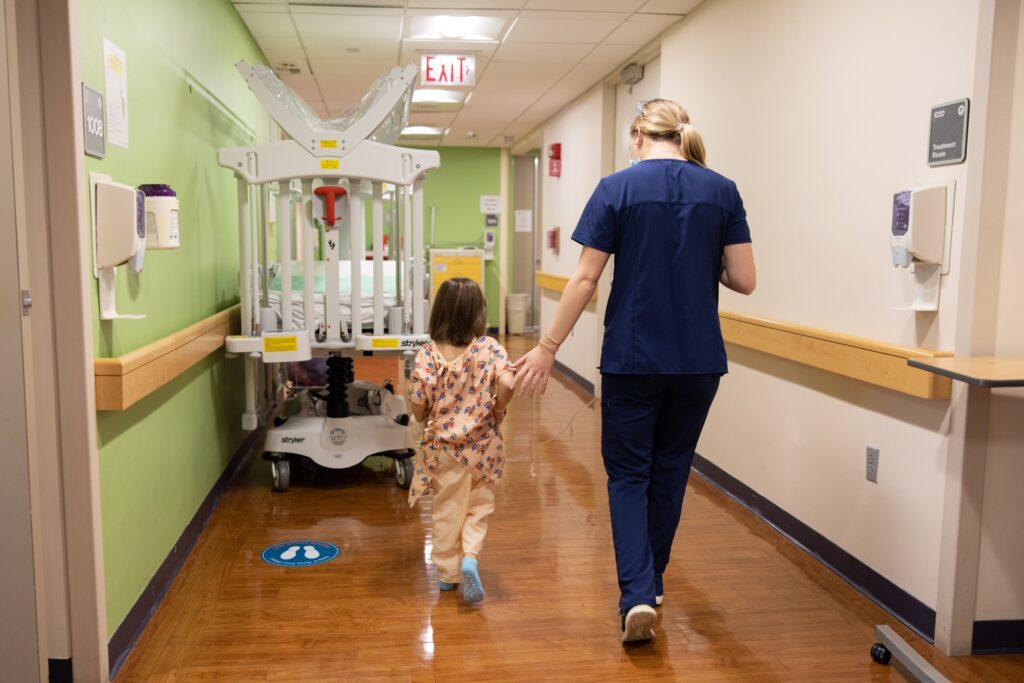
Seeing your child in the hospital about to undergo surgery can be stressful and emotionally exhausting, even for more minor procedures. Children can also be scared or nervous about this unknown experience. That is why children who undergo surgery at Mass Eye and Ear have a child life specialist work with them and their families to guide them throughout the process.
Child life specialists are experts in child development, who promote effective coping through play, preparation, education and self-expression activities. This critical group designs, implements and evaluates programs that assess and treat the psychosocial, developmental and educational needs of children and their families throughout the duration of surgery.
Focus spoke with Ashley Hoyt and Ally Kennedy, two passionate child life specialists at Mass Eye and Ear, who explained why their program is essential for pediatric surgery success.
A day in the life
Mass Eye and Ear child life specialists work with families and their children under 18 years old who are undergoing minor or major eye or ENT surgeries.
On average, each child life specialist sees around 20 patients and families a day. The main role throughout their time with each family is to provide educational awareness, comfort and support through difficult transitions.
“We provide family-centered care,” shared Ashley. “We are not only there for the children, but for parents and siblings and any questions they may have. We want to be their staple in a very busy, confusing time.”
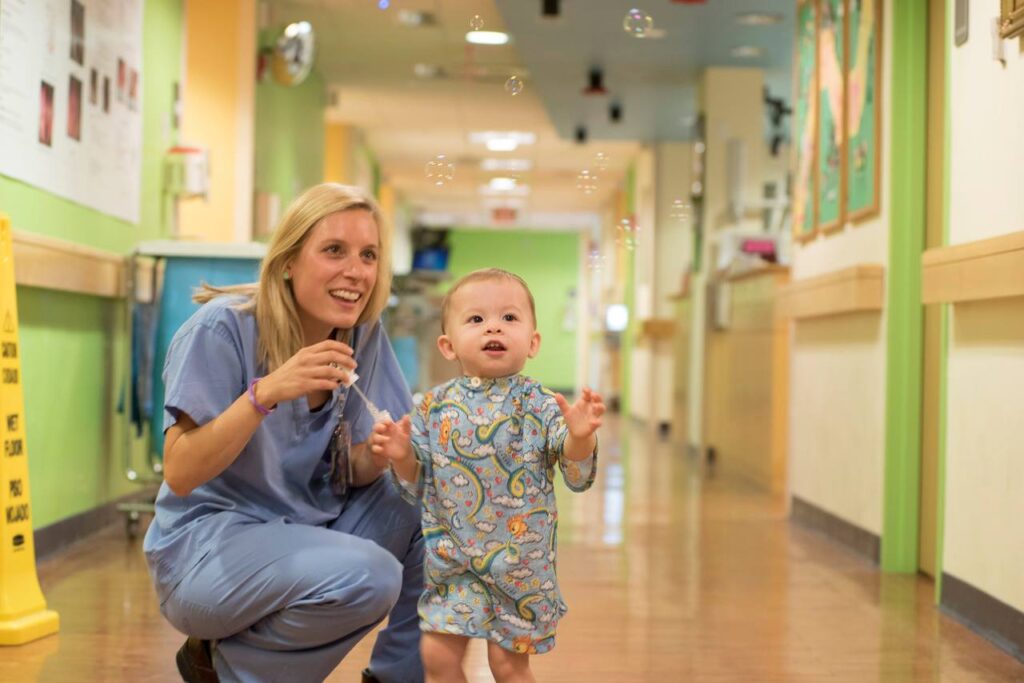
When a family enters the hospital, a child life specialist greets them and helps them transition to the surgical floor. The specialist explains to the child, in age-appropriate terminology, the process of the surgery and answers any questions they or their parents might have. One parent changes into scrubs to accompany the child in the operating room (OR) to be present while anesthesia is administered.
After the child and family are prepped, the child life specialist uses play to keep them engaged and calm and will continue this as they enter the OR.
The child life specialist then brings the child to the OR for anesthesia induction and then escorts the parent out to help them get settled and explain next steps.
After surgery, the child life specialist follows up with the child and their family on the floor—ensuring they’re drinking, helping set goals and taking them on walks if they have to stay overnight.
“After surgery, we try to give the parents a break as it’s a long day for them,” said Ally. “We’ll take the child out of the room to change up the environment.”
Together every step of the way
Some children the child life specialists work with come in for very common medical procedures, such as an adenoidectomy, the removal of a child’s adenoid gland, or ear tubes (tympanostomy), a surgical procedure to drain excess fluid in the ear. These surgeries require minimal time in the hospital, have a speedy recovery and will not necessarily require a long-term adjustment; therefore, the child life specialist’s role is temporary and only on the day of surgery.
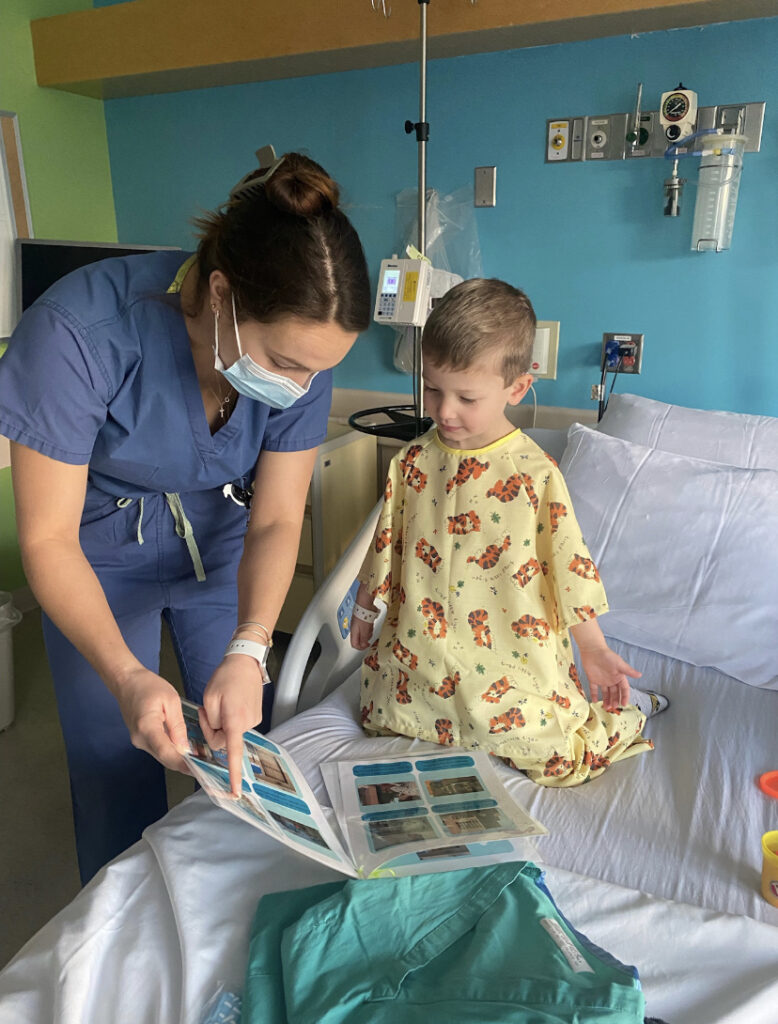
However, there are many children who undergo more significant surgeries that are life-altering for both the child and family. For example, a child diagnosed with retinoblastoma, a rare eye cancer, may need to have an eye surgically removed which can result in more supportive medical play and interventions.
The child life team also works closely with airway patients who have trouble breathing and usually need multiple surgeries with longer recovery periods.
On some occasions, a child life specialist will sit in on family meetings with the doctor to be another set of ears. “When parents, receive all of the information about their sick child, it’s hard to process what the physicians or nurses are saying,” Ally said. “The number of times a parent has turned to me and said, ‘what did they say?’ after speaking with a doctor is countless. It makes you realize how important it is that we are there.”
“I can see first-hand how appreciative the families are of our child life specialists,” said Christopher J. Hartnick, MD, MS, director of the Division of Pediatric Otolaryngology and Pediatric Airway, Voice, and Swallowing Center at Mass Eye and Ear. “It’s hard to imagine your child undergoing the surgeries we have to perform, and there is no easy way to remain calm. Our child life specialists are there for families every step of the way and are an invaluable part of our team.”
Program champions
The Child Life Department is made possible thanks to support from philanthropy.
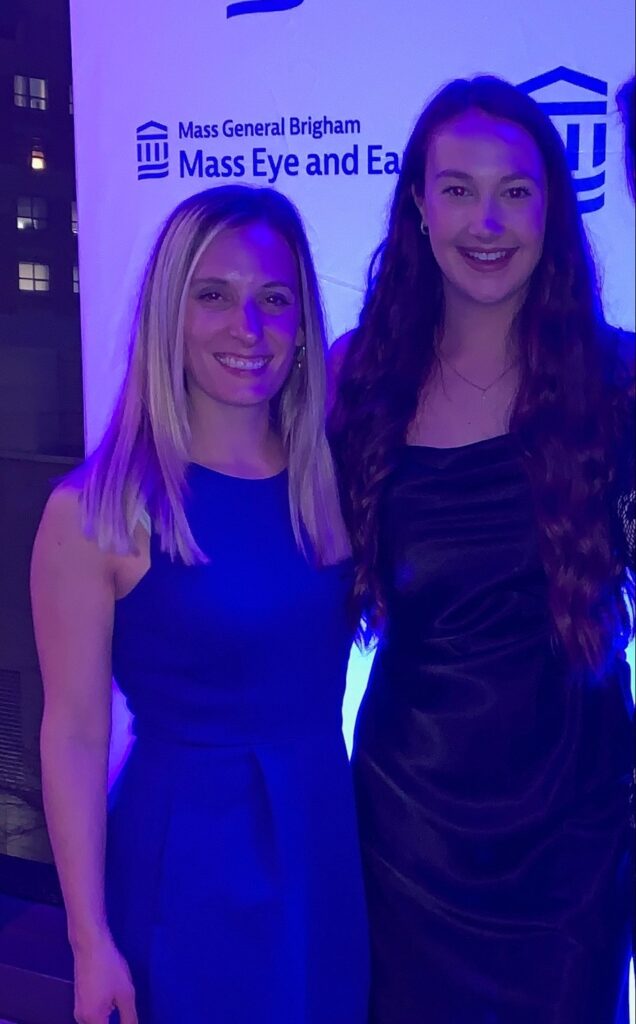
In 2008, Ashley began her career at Mass Eye and Ear as a child life specialist, and shortly after in 2010 was introduced to both David Vargo, Board of Trustees Chair at Mass Eye and Ear and his wife Sheila Collins, who were interested in learning more about her work.
David and Sheila soon became champions of the Child Life Department. From 2010 onwards, they have given to the program to support its costs, including supporting staffing.
“Over the years, their generosity has given our program an opportunity to greatly expand,” said Ashley.
More recently, Ben and Ellen Harvey made an exceptional donation after meeting with Ally for a day to learn about the program. Ellen shared that Ally’s passion and enthusiasm for her work was a big factor for them in deciding to make the gift.
Thanks to the support of these donors and others like them, Ashley, Ally and team continue to do life-changing work and make truly impactful differences for every family who has a child undergoing a surgical procedure at Mass Eye and Ear.


